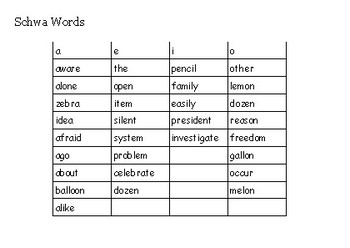I still remember learning, in my early days at school, that there are five vowels in English: a, e, i, o and u. But I discovered later that this simple account doesn’t tell the whole story. For one thing, the letter y can also function as a vowel, as in the word sky. And, more importantly, the count of five (or six) vowels only applies to writing; in spoken English there are, depending on which regional variety you listen to, up to twenty-odd vowel sounds. The written letter e, for example, represents different sounds in the words end, me, happen and England. Hence the need for a bigger set of symbols than the 26 letters of the alphabet to represent the pronunciation of English words.

Different dictionaries use different sets of symbols, but in British publications for learners of English, including the Macmillan Dictionary, the most common is a subset of symbols from the International Phonetic Alphabet. People sometimes find some of these symbols intimidating, but it’s really worth the effort of learning to recognize them and the sounds they represent, because you’ll then be able to check the pronunciation of any word you aren’t sure about, either in a general learner’s dictionary or – in the case of less frequent words, place names, personal names, etc. – in a specialized pronunciation dictionary.
3°) Now my understanding about the schwa sound is that: a) Any multisyllable words on which there is a schwa sound or more than a schwa, it has to be a stressed syllable for the schwa to exist. B) In function words, it has to be a stressed syllable prior to or after the schwa sound, no matter if there are consecutive schwa sounds. Vowel-L – Any vowel followed by an L at the end of a multi-syllable word will change it’s sound to a schwa (e.g., equal, animal, travel). Open A – An open A at the end of a word will always change to a schwa. An open A at the beginning of a word will only change to a schwa if it’s unaccented (e.g., banana, adorable).
Types A Schwa On Word
For some words – very frequent grammatical words – dictionaries give ‘strong’ and ‘weak’ pronunciations. There are generally about forty-odd such words, including, for example:

Types A Schwa On Words
| strong | weak | |
| can | /kæn/ | /kən/ |
| he | /hiː/ | /hi/, /i/ |
| them | /ðem/ | /ðəm/ |
The strong forms appear when the word is stressed (e.g. ‘Yes, we can!’) while the weak forms, which are much more frequent, appear when the word is unstressed (e.g. ‘If you can just wait a minute …’).
Very often, as in the case of can and them, the vowel in weak forms is the so-called schwa: /ə/, which only appears in unstressed syllables and is actually the most frequent vowel sound in English, accounting for about 10% of all vowel sounds and appearing in a variety of spellings, including along, curtain, open, today, curious.
As well as in weak forms, schwa also appears in the unstressed syllables of the dictionary transcriptions of many other words. You might expect from looking at the word banana, for example, that it would have three identical vowel sounds, but it turns out that the stressed second syllable has the vowel /ɑ:/, while the unstressed first and third syllables have /ə/.

.svg/1200px-Rhotacized_schwa_(vector).svg.png)
As languages go, English is particularly extreme in differentiating between stressed and unstressed syllables; the stressed syllables play a disproportionately big role in making words identifiable, and because unstressed syllables are out of the spotlight, and don’t contribute much to the exact identity of words, it doesn’t really matter exactly what they sound like. For example, some people pronounce the first syllable of believe as /bɪ/, others as /bə/, and in fact it would often be hard to tell exactly which vowel sound is used. Even if you use a different one – if you say, for example, /bʊ/ or /be/ – the identity of the word will be clear; the important thing is to pronounce the stressed second syllable with a clear /iː/ vowel.
The second part of this post will say more about /ə/, unstressed syllables and how words are often disguised in spoken English.
Email this Post